Meet Our Available Puppies
Find the perfect ‘tail’ for your story!
The Puppy You've
Been Waiting For.
Product Title Here
Put a bird on it tumblr trust fund sustainable williamsburg green juice.
Product Title Here
Put a bird on it tumblr trust fund sustainable williamsburg green juice.
Product Title Here
Put a bird on it tumblr trust fund sustainable williamsburg green juice.
Product Title Here
Put a bird on it tumblr trust fund sustainable williamsburg green juice.
Product Title Here
Put a bird on it tumblr trust fund sustainable williamsburg green juice.
Product Title Here
Put a bird on it tumblr trust fund sustainable williamsburg green juice.
May 3, 2025
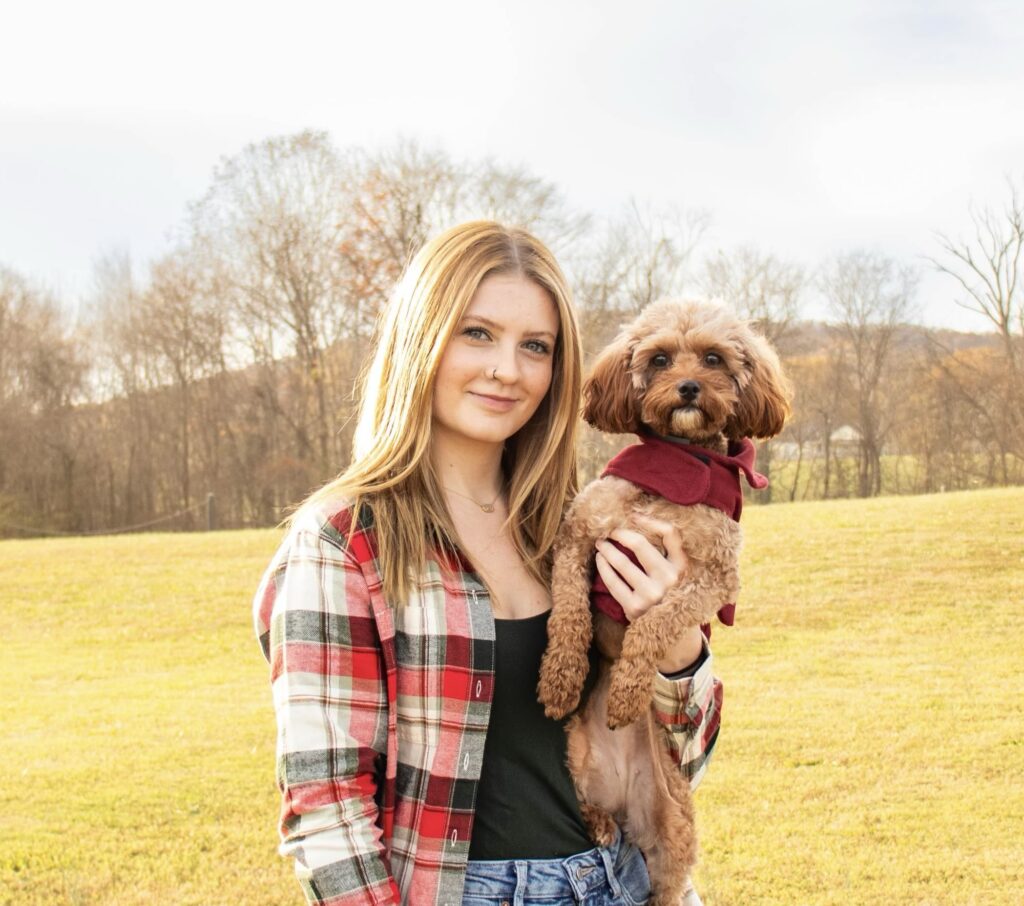
Have you ever wondered if there’s a dog that’s not only adorable and low-shedding, but also emotionally in tune with your needs? One that doesn’t just sit at your feet, but genuinely seems to understand you—especially on the days when life is tough? Let me introduce you to the Cavoodle.
Also known as a Cavapoo in the U.S., the Cavoodle is quickly becoming one of the most popular companion dogs around, and for good reason. These gentle, curly-coated charmers are stealing hearts across the world—not just because they’re cute (though they really, really are), but because they’re incredibly well-suited to provide emotional support for people managing long-term health conditions. And today, I want to tell you why.
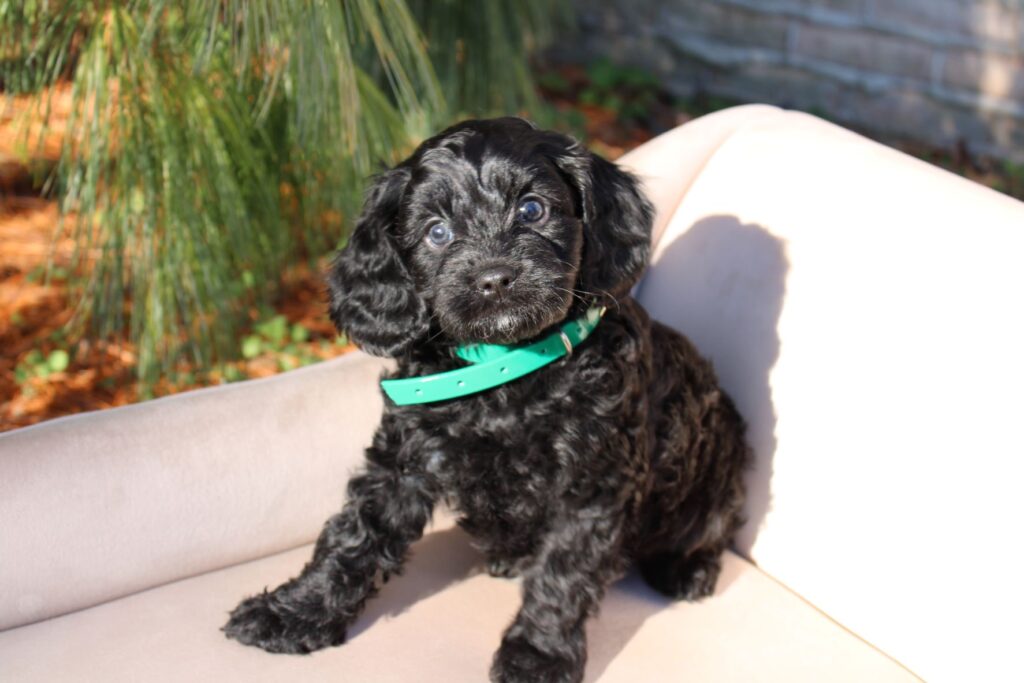
A Brief History of Cavoodles
The Cavoodle is a crossbreed between the Cavalier King Charles Spaniel and the Poodle—most often the Miniature or Toy variety. While the exact origin is a little murky, the breed is believed to have emerged in the 1950s from accidental pairings. The sweet-natured, curly-coated results gained attention, and intentional breeding efforts soon followed.
Although Cavoodles appeared informally in the United States, the first officially recorded Cavoodle litter is credited to Australia in the 1990s. This has led many to consider the Cavoodle an Australian designer breed, despite its earlier accidental roots in other parts of the world. Today, the Cavoodle is one of the most beloved and recognized Poodle crossbreeds globally.
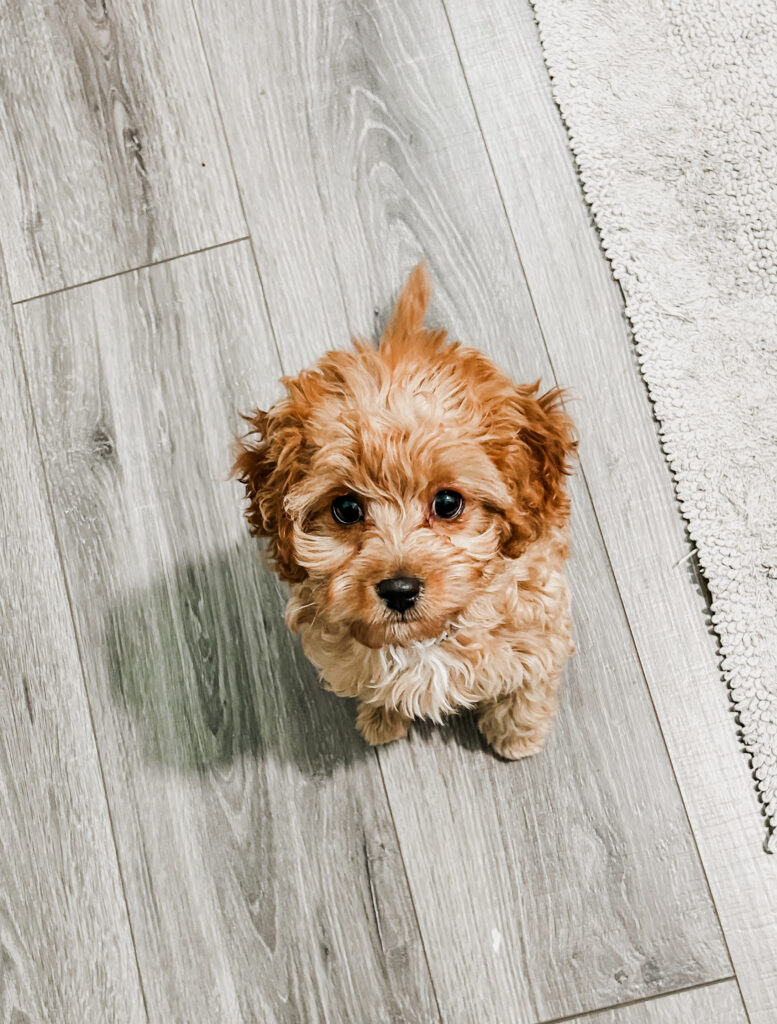
The Cavoodle’s Personality
Cavoodles make outstanding family pets. They’re affectionate, sociable, and tend to form strong bonds with both individuals and groups. Whether you’re a single adult navigating chronic illness or a family with small children, the Cavoodle’s gentle temperament makes it a reliable companion.
Cavoodles are:
- Loyal and even-tempered
- Highly trainable through positive reinforcement
- Friendly with children, the elderly, and other pets
They love being the center of attention and don’t do well with extended isolation. If you’re away from home frequently, this breed may develop separation anxiety—a condition that can cause stress-related behaviors like barking or chewing.
Social by nature, Cavoodles are also alert and curious. While not aggressive, they may act as watchdogs by barking at unfamiliar noises or visitors. With early socialization, they quickly learn to distinguish between real threats and welcomed guests.
It’s important to remember that because Cavoodles are a hybrid, their personalities can lean more toward either parent breed. Some may inherit the Poodle’s independent streak, while others reflect the Cavalier’s relaxed, cuddly nature. Each Cavoodle is unique!
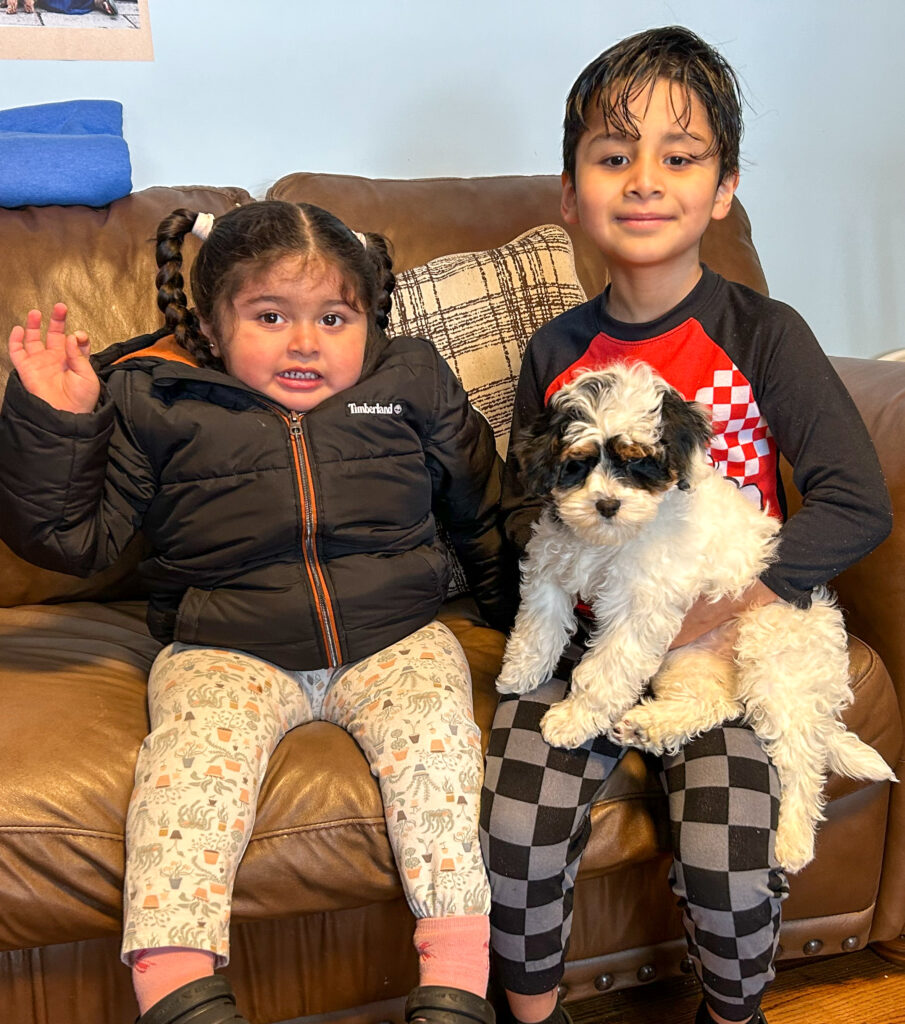
Cavoodle Size and Weight
Cavoodles are classified as small dogs, but size can vary depending on whether the Poodle parent was Toy or Miniature.
- Weight: Typically between 5kg and 12kg (11–26 lbs)
- Height: Ranges from 28 to 35 cm (11–14 inches) at the shoulder
- Growth: Most Cavoodles reach full size between 8 and 10 months of age
Their size makes them ideal for both apartments and larger homes, and they’re small enough to travel easily with you—whether you’re heading to the park, the vet, or a weekend getaway.
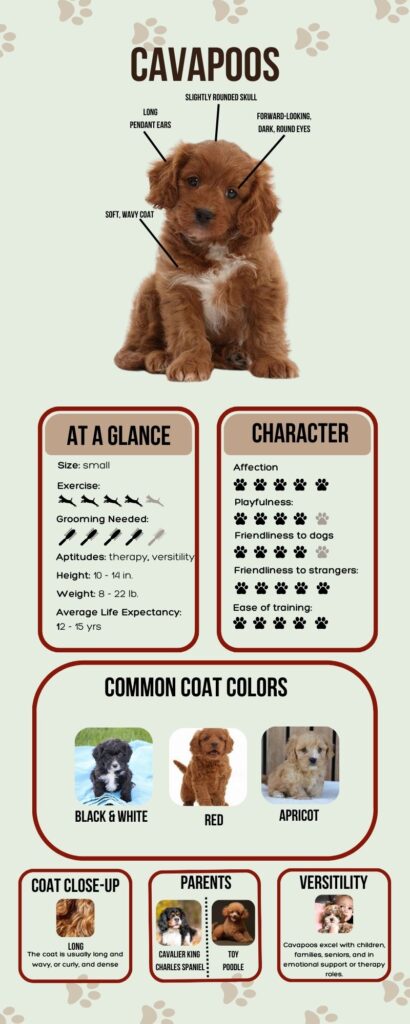
Common Cavoodle Health Conditions
Because Cavoodles are a mixed breed, they can inherit health conditions from either the Poodle or Cavalier King Charles Spaniel. Ethical breeding and regular veterinary care can reduce risk, but it’s important to know what to watch for:
1. Syringomyelia – A painful spinal condition resulting from malformed skull structure. Look for signs like neck sensitivity or yelping when touched.
2. Mitral Valve Disease – A common heart issue passed down from the Cavalier side. Early signs include coughing, labored breathing, or fatigue. This condition can appear earlier than expected.
3. Eye Disorders – Cavoodles may develop cataracts or progressive retinal atrophy. Symptoms include cloudy eyes and declining night vision.
4. Hip Dysplasia – An improperly fitting hip joint that may lead to arthritis. Symptoms include limping or difficulty standing after rest.
5. Luxating Patellas – Kneecaps that slip out of place, causing pain or lameness. May require surgery in severe cases.
6. Epilepsy – Some Cavoodles may experience idiopathic seizures between ages 1 and 5.
7. Dental Issues – Mal-aligned teeth or retained baby teeth are common in small breeds, especially those with Poodle ancestry.
To minimize risk, choose a breeder who screens both parent dogs for these conditions. Genetic and diagnostic testing is available, and your veterinarian can guide you in prevention and early detection.
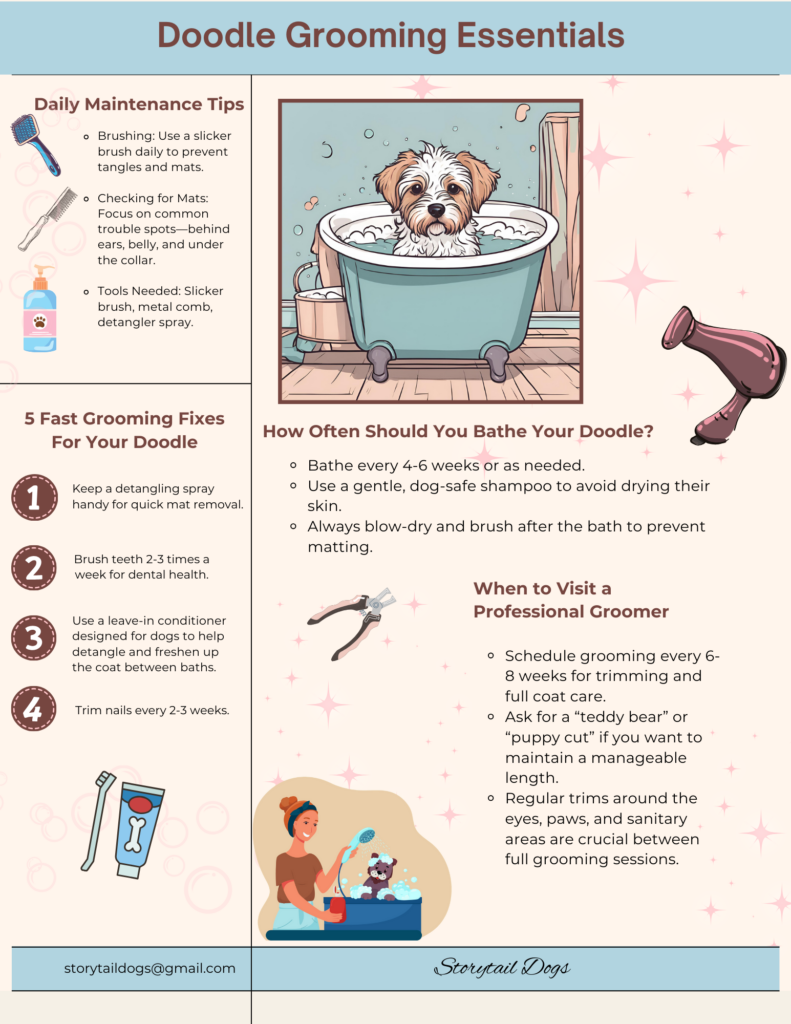
How to Care for Your Cavoodle
One of the Cavoodle’s most appealing traits is their adaptability. Whether you live in a small city apartment or a sprawling farmhouse, a Cavoodle will likely feel right at home—as long as they have you nearby.
They do need daily attention and moderate exercise:
- 30 to 60 minutes of activity per day
- A mix of short walks, mental stimulation, and playtime
- Puzzle toys, chew items, and interactive games to keep boredom at bay
Without enrichment, Cavoodles may develop undesirable habits like barking, digging, or chewing furniture. Their emotional sensitivity means they thrive best in homes where they’re part of daily life—not left alone for long hours.
If you notice signs of boredom or behavioral changes, consult your vet or a certified trainer who can suggest enrichment strategies and routines.
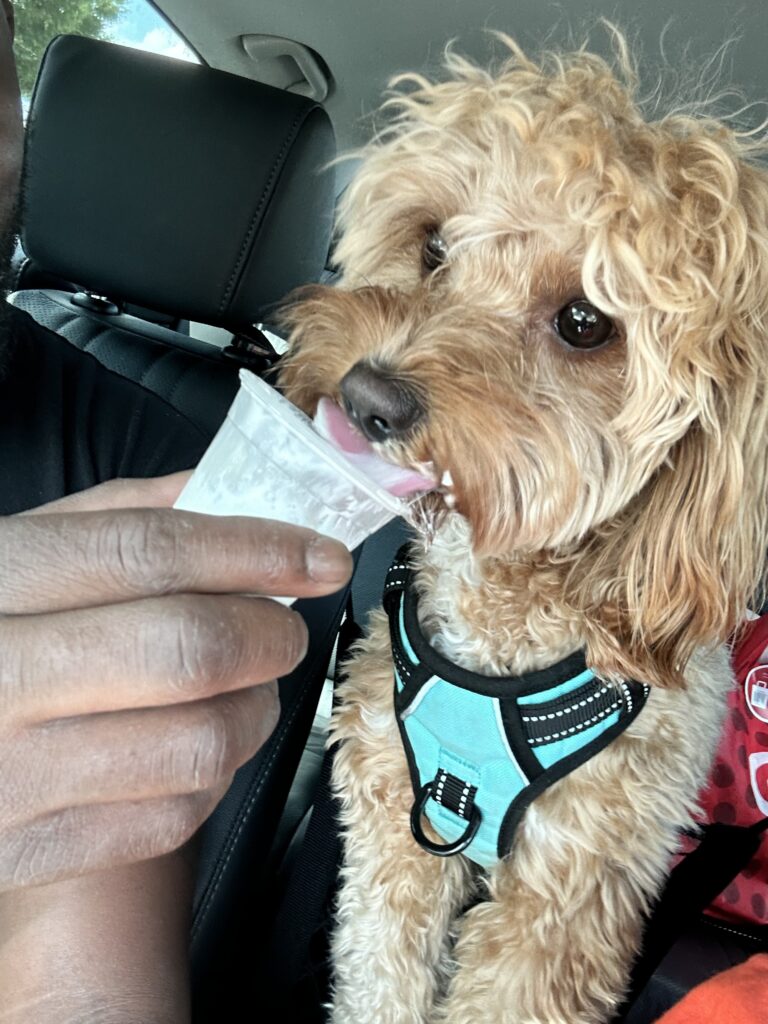
Feeding and Diet
Cavoodles don’t eat much compared to larger breeds, but it’s still essential to offer a high-quality, balanced diet that meets their nutritional needs.
Puppies should be fed small-breed puppy formulas with the right calcium-to-phosphorus ratio to support bone growth. As adults, switch to food designed for small dogs that includes:
- High protein content for lean muscle
- Omega-3s for skin and coat health
- Essential vitamins and minerals
Look for smaller kibble sizes, which are easier on their small mouths and teeth. Feeding schedules should match your dog’s life stage and lifestyle—puppies may eat 3 times a day, while adults may do well on 2 meals.
Treats should be used in moderation, and always check with your vet before introducing new foods.
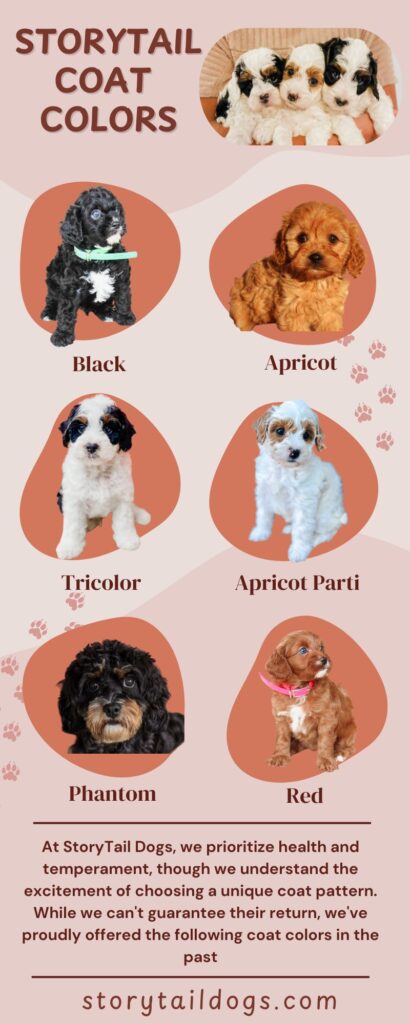
Cavoodle Appearance: Coat, Colors, and Grooming
Cavoodles are as visually diverse as they are lovable. Thanks to their mixed heritage, they come in a wide range of colors and coat types:
Colors:
- Apricot, cream, red, chocolate, black, silver, and tan
- Markings may include phantom, parti, tuxedo, or solid colors
Coat Types:
- Curly (more Poodle-like)
- Wavy or feathered (more Cavalier-like)
Coat Traits:
- Low to non-shedding
- Considered hypoallergenic by many allergy-sensitive families
However, Cavoodle coats do require routine care:
- Brushing: at least 2–3 times per week
- Grooming: every 6–8 weeks
- Eye, ear, and paw trimming as needed
Without regular grooming, Cavoodle coats can mat, which is painful and may require complete shaving. If you’re not up for coat maintenance, plan to build a strong relationship with a local groomer.
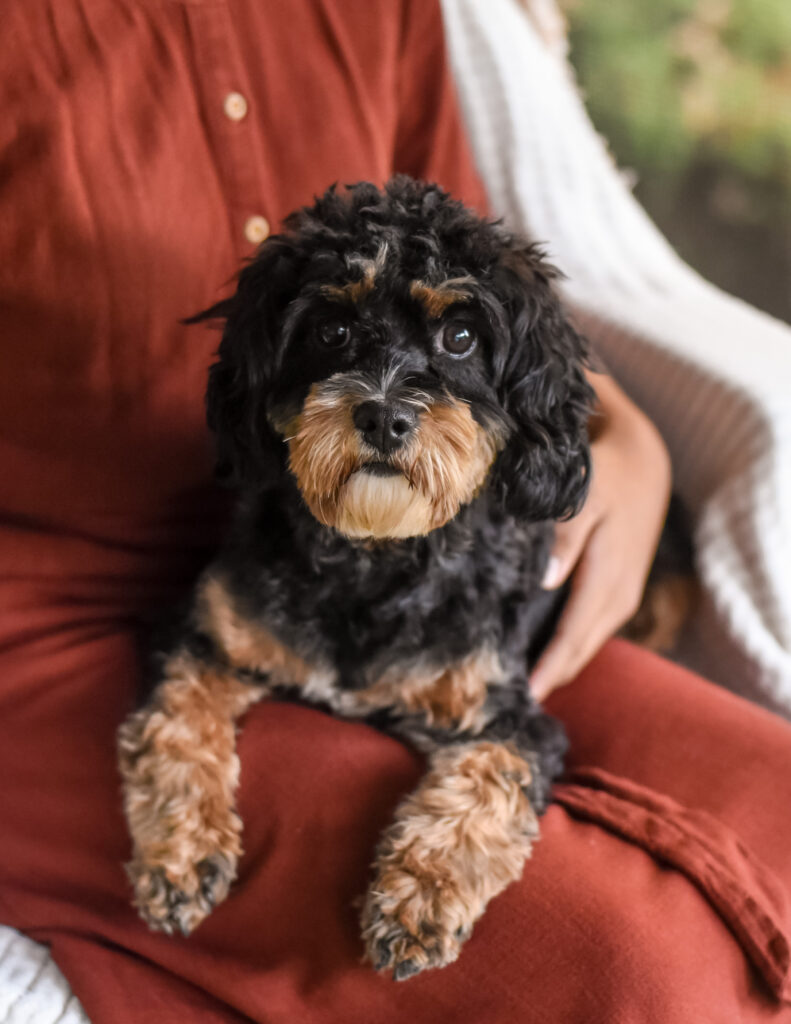
Cavoodle Lifespan & Aging Care
The Cavoodle is known not just for its charm but for its longevity. With responsible breeding, regular vet care, and a healthy lifestyle, most Cavoodles live 12–15 years, with some reaching 16 or 17. This makes them ideal long-term companions—especially for families or individuals needing emotional support over time.
As Cavoodles age, you might notice:
- More naps and less play
- Slower movement or joint stiffness
- Graying fur or cloudier eyes
To support healthy aging:
- Switch to a senior dog food like Hill’s Science Diet Adult 7+ formulated for aging joints and brain health
- Provide an orthopedic dog bed like this one by Big Barker
- Schedule biannual vet visits for wellness screenings and early detection
- Learn more from the American Kennel Club’s senior dog care guide
Cavoodles make even sweeter companions with age, often becoming calmer and more emotionally in tune.
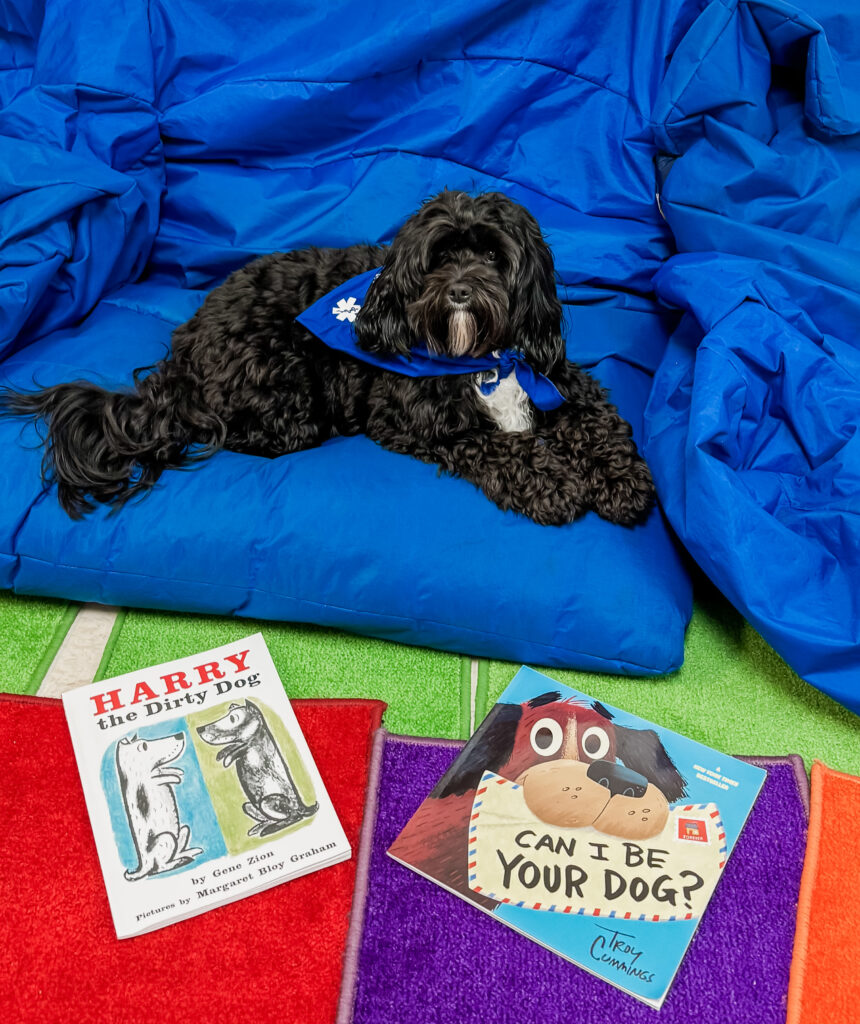
Cavoodles and Mental Health Support
Cavoodles are particularly well-suited for people managing mental health conditions like anxiety, depression, PTSD, and chronic stress. They form tight emotional bonds and are naturally responsive to changes in your mood or energy.
Why Cavoodles work well as emotional support animals (ESAs):
- Calming presence and consistent temperament
- Tendency to stay close, offering touch-based comfort
- Ease of training for grounding behaviors
- Small size for easy travel and housing accommodations
Many therapists and doctors now recommend emotional support animals as part of treatment plans. Learn more about ESAs through NAMI (National Alliance on Mental Illness).
And if you’re wondering how to legally register an ESA, the U.S. Department of Housing and Urban Development outlines rights and accommodations for emotional support animals.
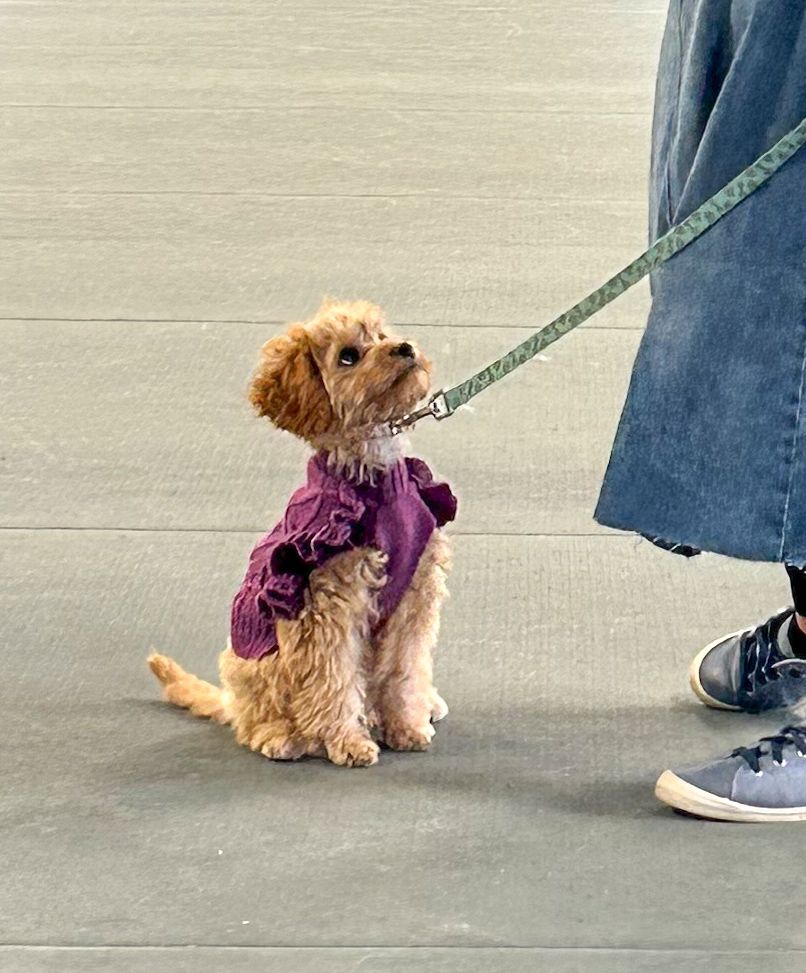
Training Your Cavoodle: From Puppy to Pro
Cavoodles are bright, eager, and highly trainable. Their desire to please makes them fast learners, even for first-time dog owners.
Top training priorities:
- Potty training: Keep a schedule and use a reward-based method like clicker training
- Crate training: Use positive association techniques with treats and comfort items
- Basic commands: Start with “sit,” “stay,” and “come”—you can follow this AKC training guide
- Socialization: Introduce your Cavoodle to children, dogs, and new environments early
As they grow, Cavoodles are well-suited to advanced obedience, therapy dog work, and even agility courses. The Association of Professional Dog Trainers is a great resource for finding reputable trainers near you.
Cavoodle Temperament by Generation (F1, F1B, F2)
When searching for a Cavoodle, you’ll often see terms like F1, F1B, or F2. These indicate the dog’s generation, and each comes with slightly different coat types and temperaments.
| Generation | Genetics | Best For |
|---|---|---|
| F1 | 50% Poodle, 50% Cavalier | Balanced coats and temperaments |
| F1B | 75% Poodle, 25% Cavalier | Allergy-sensitive families |
| F2 | Two Cavoodle parents | Wide variety in traits; less predictable |
For a deep dive into doodle generations, check out this educational article by PetMD.
At Storytail Dogs, generation is just part of the equation—we focus even more on temperament matching, early training, and family compatibility to ensure your Cavoodle fits beautifully into your life.
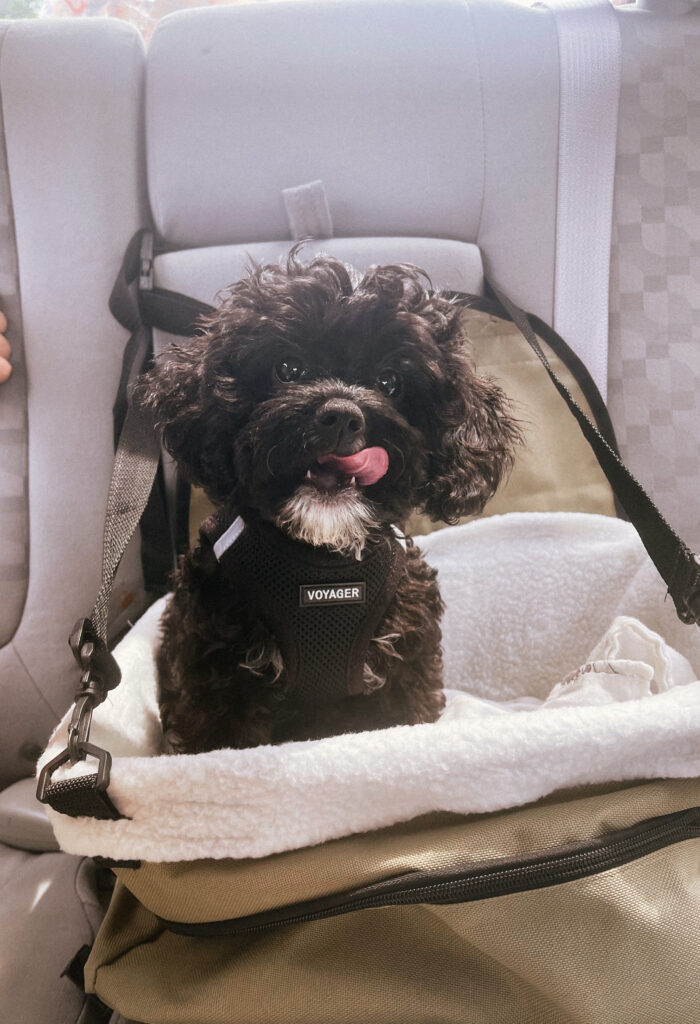
Traveling With a Cavoodle
Cavoodles are fantastic travel dogs—they’re compact, adaptable, and love being close to their people. Whether you’re heading to the local café or flying across the country, Cavoodles are typically small enough to travel in-cabin on most airlines.
Road trip essentials:
- Crate or harness certified by the Center for Pet Safety
- Portable water bowls, comfort toys, and high-value chews
- Pet ID tag with updated contact info
Flying with your Cavoodle:
- Check airline pet policies in advance—this United Airlines guide is a good example
- Use an IATA-approved soft-sided pet carrier
- Ensure up-to-date vet records and microchip info
For a smooth experience, the American Veterinary Medical Association (AVMA) offers excellent travel checklists.
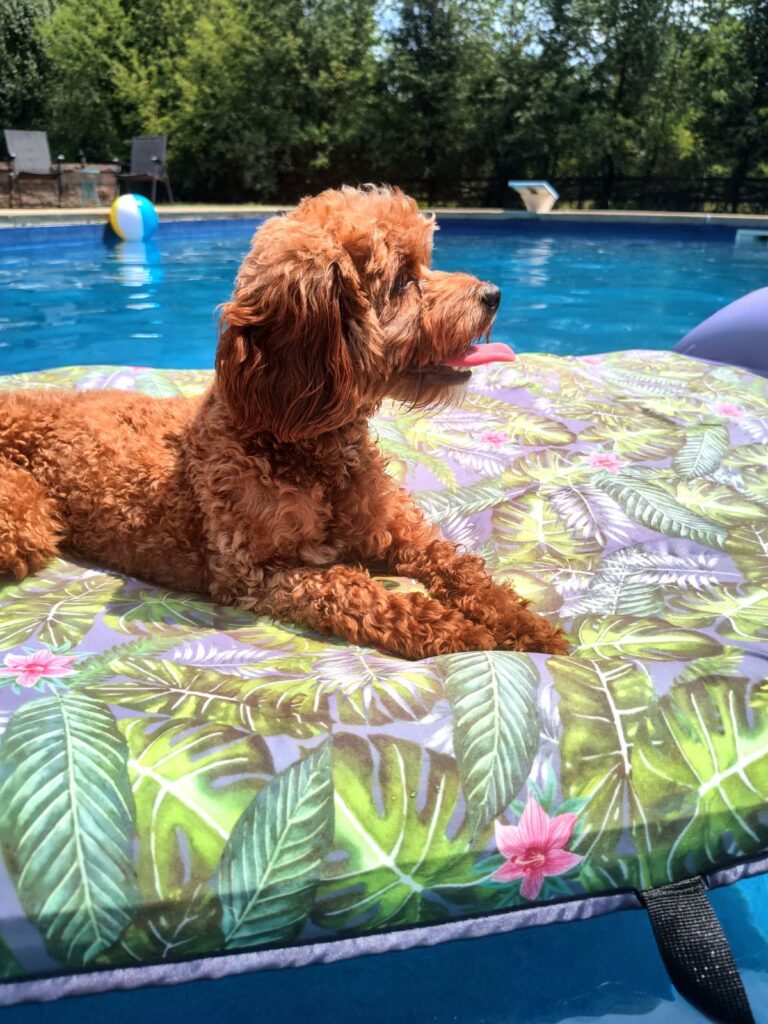
Choosing the Right Cavoodle for Your Lifestyle
While Cavoodles are flexible, not every puppy is the right fit for every home. The best outcomes come from pairing temperament with lifestyle—not just picking a pretty coat color.
Consider your home life:
- Busy family with kids? Look for a confident, playful puppy with Cavalier traits
- Single adult or retiree? A mellow, snuggly pup may suit you best
- Someone with anxiety or disability? Seek out a Cavoodle with intuitive, calm tendencies
Reputable breeders like Storytail Dogs assess personality through puppy aptitude testing, daily observations, and family interviews. This helps ensure the right match from the start, lowering the risk of future behavioral issues or rehoming.
For tips on choosing a dog for emotional support, check out Psychology Today’s article.
Cavoodle vs. Other Doodle Breeds
If you’re still deciding between doodles, here’s how the Cavoodle compares to other popular Poodle mixes like Maltipoos, Goldendoodles, and Labradoodles.
| Trait | Cavoodle | Maltipoo | Goldendoodle | Labradoodle |
|---|---|---|---|---|
| Size | Small (11–25 lbs) | Extra Small (5–15 lbs) | Large (45–75 lbs) | Large (50–80 lbs) |
| Energy Level | Moderate | High | High | High |
| Allergy Suitability | Excellent (F1B ideal) | Excellent | Moderate | Moderate |
| ESA Potential | Very High | High | Moderate | Moderate |
| Grooming Needs | High | Moderate | High | High |
Looking for a doodle that’s small, sensitive, and suitable for therapy or support roles? The Cavoodle consistently comes out ahead.
You can learn more about doodle breeds in this Petfinder breed comparison guide.
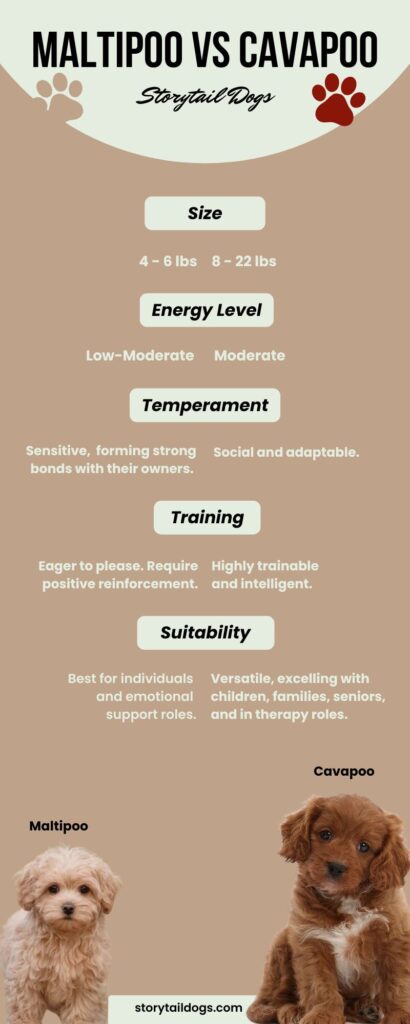
Cavoodle FAQs
What is a Cavoodle?
A Cavoodle is a designer dog breed resulting from a Cavalier King Charles Spaniel and a Poodle. They are friendly, intelligent, and affectionate.
What do you feed a Cavoodle?
Feed a complete and balanced dry dog food made for small breeds. Puppies should receive food appropriate for their age.
When does a Cavoodle stop growing?
Most Cavoodles reach adult size between 8 and 10 months.
How big do Cavoodles get?
Adult Cavoodles typically weigh 5–12 kg and stand 28–35 cm tall.
How long do Cavoodles live?
Cavoodles have a life expectancy of 12–15 years, sometimes longer with excellent care.
How much exercise do they need?
Cavoodles need 30–60 minutes of exercise per day.
Are Cavoodles easy to train?
Yes, they’re intelligent and respond well to positive reinforcement.
Are Cavoodles high maintenance?
Their grooming needs are high, but their temperament is easygoing.
Do Cavoodles shed a lot?
No, they are low-shedding and often suitable for people with allergies.
Are Cavoodles good family dogs?
Yes, they’re gentle, social, and adaptable—perfect for families, singles, or seniors.
Why Choose Storytail Dogs for Your Cavoodle
Not all breeders are created equal. If you’re looking for a Cavoodle with a calm temperament, proper socialization, and a foundation for emotional support or therapy work, Storytail Dogs is one of the best options in the U.S.
Located in Pennsylvania, Storytail Dogs is an ethical Cavapoo and Maltipoo breeder focused on:
- Early socialization, crate training, and grooming exposure
- Early Neurological Stimulation (ENS) and Early Scent Introduction (ESI)
- Matching puppies to families based on temperament and lifestyle
Our Cavoodles are raised inside our home—not in sub-par kennels—and are surrounded by kids, daily routines, and gentle enrichment. This helps ensure smoother transitions and stronger emotional bonds.
👉 See our available Cavoodle puppies here
If you want a dog who’s more than a pet—a true companion—we’d love to help you find the perfect fit.
Leave a Reply Cancel reply
Storytail Dogs
A Dog For Your Story. Focused on READ dogs, therapy dogs, and resilient family companions.
@storytaildogs
© StorytailDogs 2024. All rights reserved. | Legal |